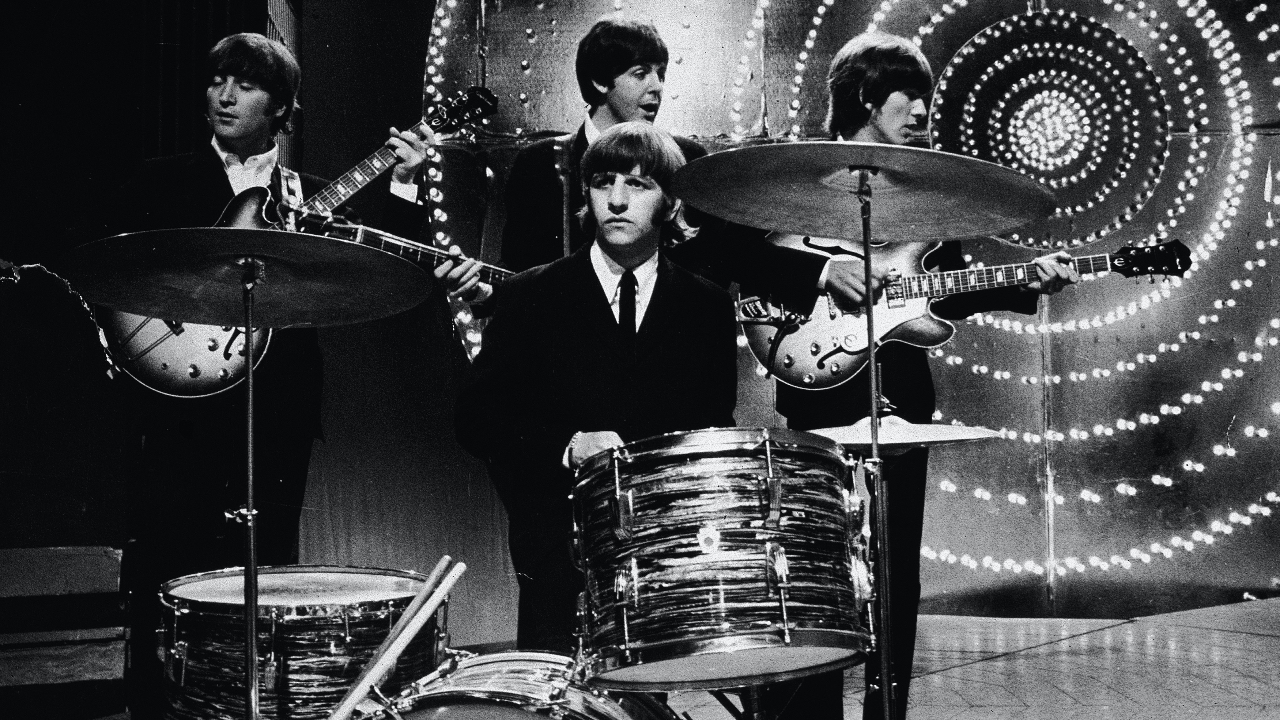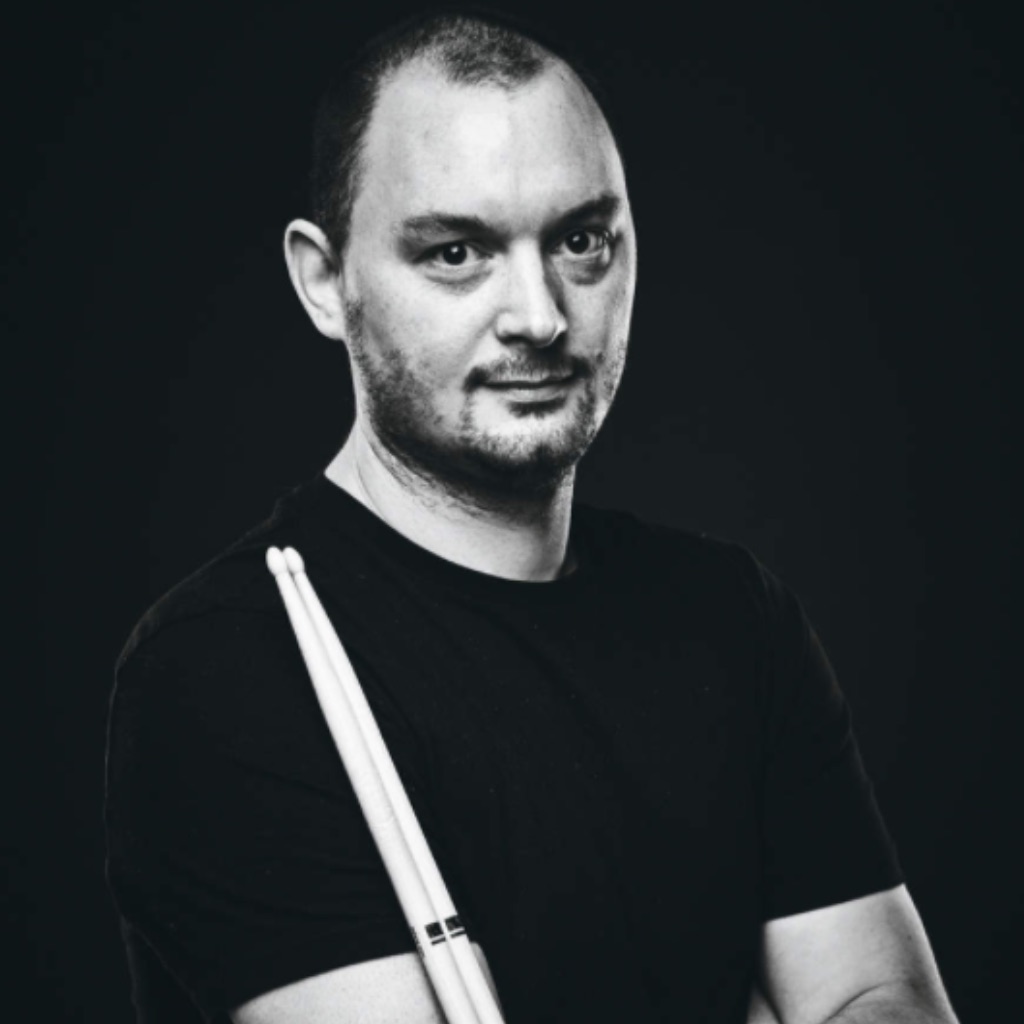Ringo Starr has named his “career-defining” Beatles song, but you’re probably more familiar with the version that he didn't play drums on
The Beatles' first single had a winding road to its release…

Ringo Starr has named what he believes to be his “career-defining” Beatles song in a new interview with Vulture, settling on the band’s debut single Love Me Do as his pick.
“Because it was the first song, my answer is Love Me Do." Starr says. "We were on vinyl. We made a record. Even though when I got to the studio, George Martin had a session guy for the drums, Andy White, but I played on it anyway.
“He played it, I played it — he’s on the album, I think, and I’m on the single, so go figure. We were just blessed that George Martin took a chance on us because many record labels sent us down.”
Ordinarily, a drummer naming his band’s first-ever single as a career-defining moment would be interesting, but not wholly surprising. Love Me Do features a stomping, swampy shuffle, complete with handclaps and percussion.
But in this case, it’s a curious choice, mostly due to the twisting plot build-up that led to the single’s release and the fact that many people will first recognise the version that Ringo didn’t play drums on.
It starts before Ringo was enlisted into the band, with original drummer Pete Best having recorded a version of the song in June, 1962. Despite being the original version, Best’s recording was previously thought to be lost and didn’t see the light of day until 1995’s Anthology 1 collection was released.
This version of the song features a stripped-back drum part (allegedly due to the fact that producer George Martin took Best’s bass drum away), and while the quality of the songwriting is immediately apparent, Best’s time-keeping is ‘fluid’.
Get the MusicRadar Newsletter
Want all the hottest music and gear news, reviews, deals, features and more, direct to your inbox? Sign up here.
This session led to George Martin apparently telling Beatles manager, Brian Epstein, “I don't care what you do with Pete Best, but he's not playing on any more recording sessions.”
Just a few months later, Best was out, Ringo was in, and it was during the band’s September 1962 sessions — only two weeks after he joined the band — that yielded the Ringo version of Love Me Do.
Job done, on to providing the backbeat to the invention of pop music as we know it? Not quite. A week later, on the 11 September 1962, the Fab Four found themselves back at Abbey Road, this time to record P.S. I Love You.
According to engineer Geoff Emerick’s book, Here, There and Everywhere, this time Ron Richards, overseeing the session in George Martin’s absence, informed the band that Martin wanted them to try a new version of Love Me Do, and that session drummer Andy White would be tracking track the drums for both this and P.S. I Love You.
“Again,” Emerick writes, “it took White only a very short time to familiarise himself with the simple song; his timekeeping was definitely steadier than Ringo’s had been the previous week.”
An understandably disgruntled Ringo was given the (perhaps slightly patronising) role of playing tambourine on the recording. However, play it he did, and the pinpoint accuracy of his hits merges with White’s drum beat seamlessly.
“The other three were playing a lot better, too, and Paul sang the lead vocal with much greater confidence. Clearly they had done a lot of rehearsing during the previous week. Even Ringo’s tambourine work was impressive—it meshed nicely with each of White’s snare hits, with remarkably few flams (beats that are just slightly out of time).”
Speaking of the session for The Beatles Anthology, Ringo admitted that it had a lasting impact on him, even though he believes that Andy White was booked after Best’s last session, with George Martin not knowing Ringo’s abilities.
“I was devastated that George Martin had his doubts about me, I came ready to roll and heard, ‘We’ve got a professional drummer.’ He has apologised several times since, has old George, but it was devastating — I hated the bugger for years; I still don’t let him off the hook!”
However, the confusion really begins with the song’s release. Early pressings of the Love Me Do single include Ringo’s take, while the Andy White version was included on debut album, Please Please Me.
The single was subsequently re-pressed using the ’11 September’ (Andy White) version of the song, with two key identifiers. First, this version of Love Me Do is played slightly faster, and second, is the obvious inclusion of Ringo’s tambourine part.
It’s this version that most listeners will be more familiar with, and in the age of streaming, it’s the one that comes up first. Ringo’s version eventually saw a definitive release, though, on The Beatles’ Past Masters collection.
Meanwhile, Ringo, who is celebrating his 83rd birthday spoke out earlier this week about the forthcoming ‘new’ Beatles song, confirming that all four members are featured on the song, and also clarifying that they would “never” fake John Lennon’s voice using AI.

I'm a freelance member of the MusicRadar team, specialising in drum news, interviews and reviews. I formerly edited Rhythm and Total Guitar here in the UK and have been playing drums for more than 25 years (my arms are very tired). When I'm not working on the site, I can be found on my electronic kit at home, or gigging and depping in function bands and the odd original project.
“I oversaw every element - not just the music and the lyrics and the melodies and the production, but also the merch and the fan clubs and everything”: Mike Portnoy talks about his years away from Dream Theater
“I’m surprised and saddened anyone would have an issue with my performance that night”: Zak Starkey explains why he got fired from The Who









